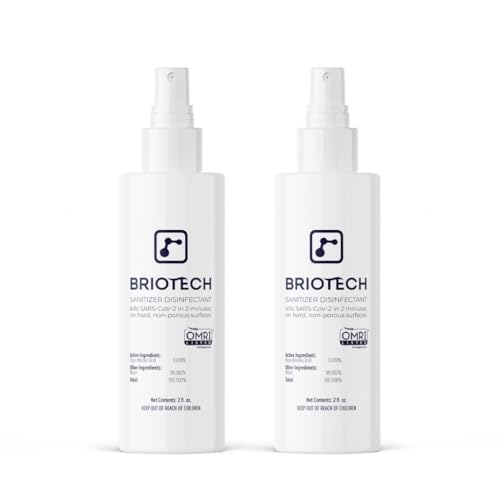Hypochlorous acid cleaning – 5 smart ways to use this ‘high impact, low risk’ cleaning essential that's as gentle as saline
It’s one of the most powerful non-toxic disinfectants, experts claim

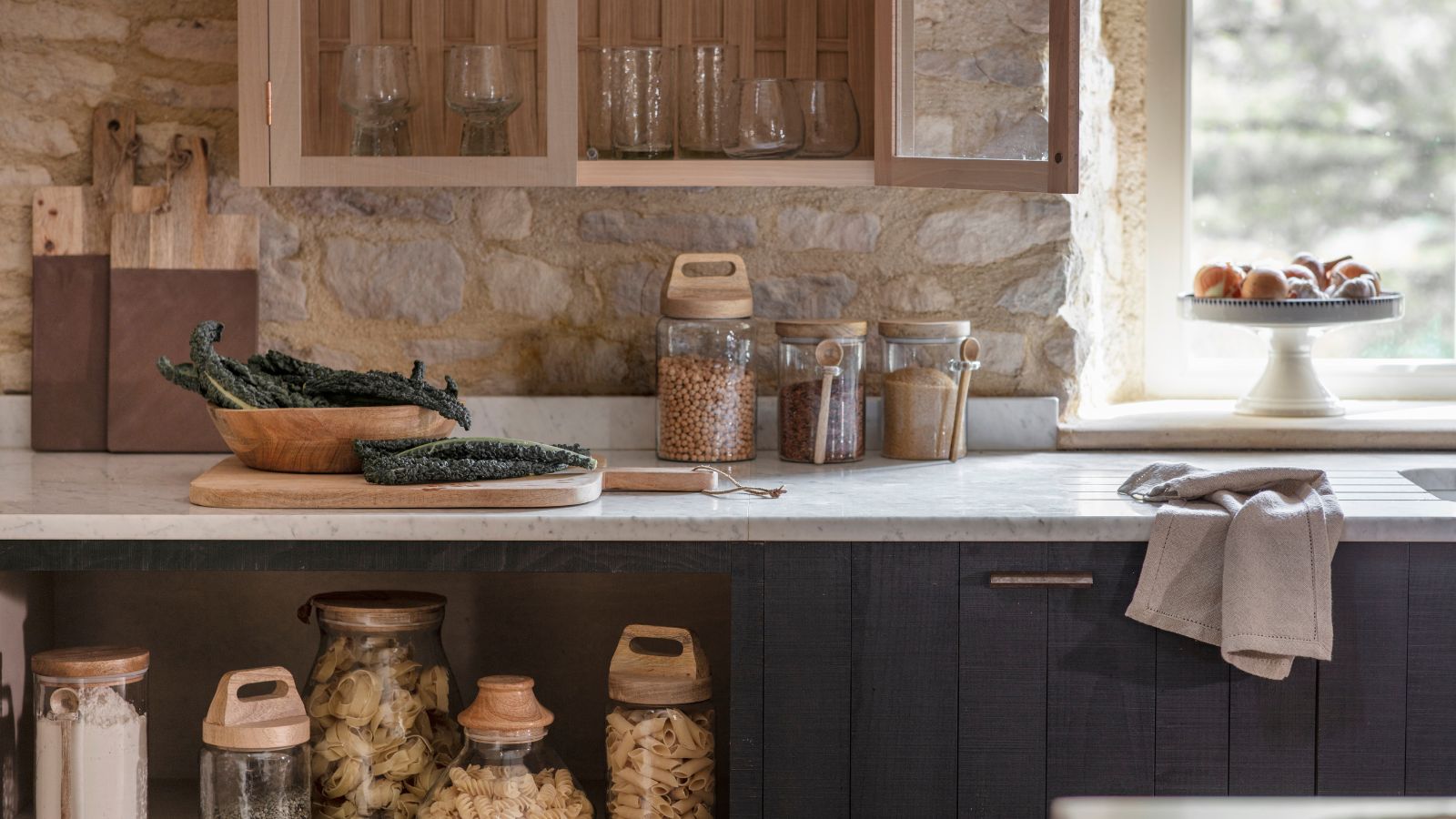
Design expertise in your inbox – from inspiring decorating ideas and beautiful celebrity homes to practical gardening advice and shopping round-ups.
You are now subscribed
Your newsletter sign-up was successful
Want to add more newsletters?

Twice a week
Homes&Gardens
The ultimate interior design resource from the world's leading experts - discover inspiring decorating ideas, color scheming know-how, garden inspiration and shopping expertise.

Once a week
In The Loop from Next In Design
Members of the Next in Design Circle will receive In the Loop, our weekly email filled with trade news, names to know and spotlight moments. Together we’re building a brighter design future.

Twice a week
Cucina
Whether you’re passionate about hosting exquisite dinners, experimenting with culinary trends, or perfecting your kitchen's design with timeless elegance and innovative functionality, this newsletter is here to inspire
It is not often you hear experts recommending using hypochlorous acid for cleaning; however, it is one of the best non-toxic disinfectants on the market.
Hypochlorous acid (HOCl) is a mild acid and powerful antibacterial compound that is naturally produced by the human immune system to fight off infections, making it one of the safest cleaning products to use in your home, especially around children and pets.
Here, professional cleaners share their tips for cleaning with hypochlorous acid to help you build your arsenal of effective non-toxic cleaning products.
How to clean with hypochlorous acid
Professional cleaner Scott Schrader, of CottageCare, begins, ‘Using hypochlorous acid (HOCl) for cleaning is not only a good idea – it is one of the most underrated innovations in safe and effective home cleaning. From my experience cleaning professionally, HOCl fills the void between becoming a commercial cleaner and safe, everyday cleaning.
‘It is smart cleaning – high impact with low risk, killing bacteria, viruses, and fungi on contact, yet is as gentle as saline.’
The best part of this cleaning tip is that it is gentle enough that you can use it practically everywhere around your home, from cleaning marble countertops to disinfecting high-touch spots such as door handles and remote controls.
These are our top five favorite tricks for creating a non-toxic home.
Design expertise in your inbox – from inspiring decorating ideas and beautiful celebrity homes to practical gardening advice and shopping round-ups.
1. Countertops and surfaces
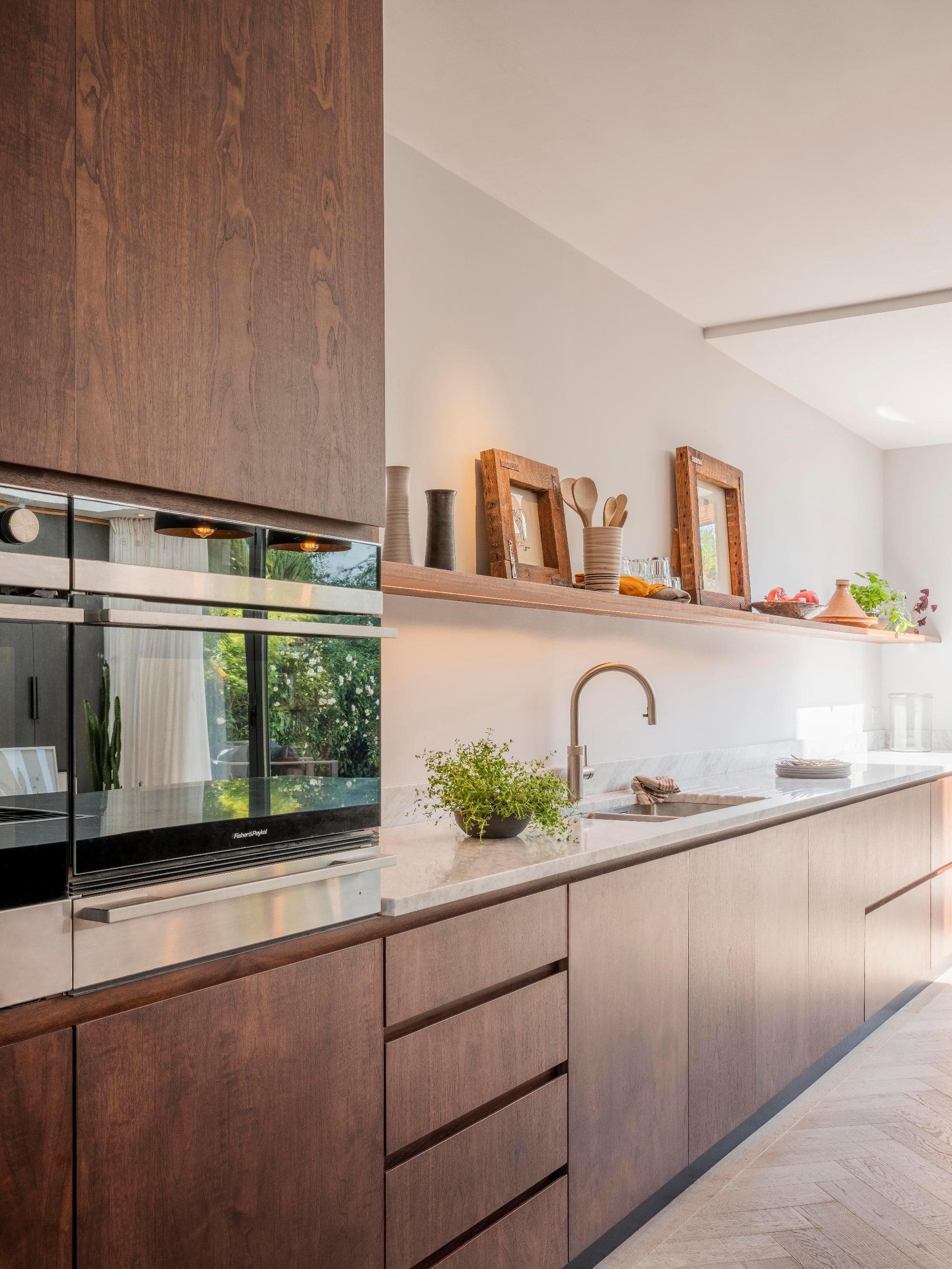
HOCl is safe for use even on delicate surfaces such as natural stone.
Scott shares, ‘Hypochlorous acid cleaning is perfect for any high-touch surface, such as cleaning kitchen countertops. Simply spray it on, let it sit for 60 seconds, and wipe off – no rinse needed. It's even food-safe, making it ideal for food prep areas.
‘Second, high-touch surfaces such as doorknobs and light switches. A quick spray and a quick chance disinfects – no bleach, no quats, no fumes.’ It is the perfect alternative to toxic anti-bacterial sprays.
Pair the spray with a similarly non-toxic tool, such as sponge cleaning cloths from Walmart, to easily disinfect surfaces without the risk of additional bacterial contamination.
2. Bathrooms
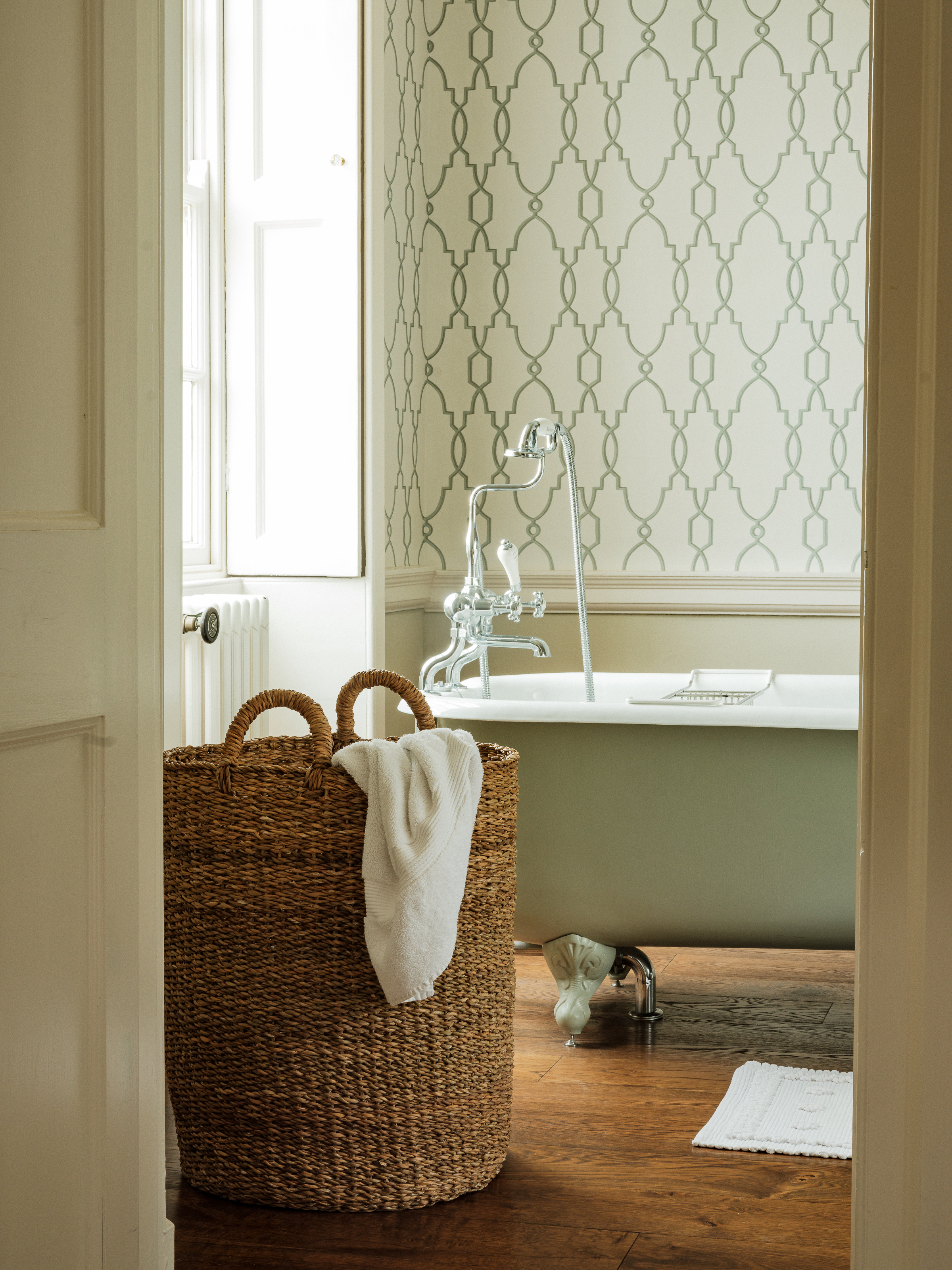
Quickly eliminate bathroom germs with a simply spray and wipe, all without the need for harsh chemicals such as bleach.
If you want to clean a bathroom like a pro, look no further than Hypochlorous acid cleaning, adds Taylor Riley, partner at AMR US Commercial Cleaning.
‘I started using hypochlorous acid when looking for a green cleaning solution that could disinfect without being a health hazard around the house. I use it on kitchen counters, in the bathroom, especially around the toilet.’
For tougher tasks that require a little more elbow grease, consider using hypochlorous acid to disinfect before following up with a damp, non-scratch Scrub Daddy Sponge from Target, to keep cleaning green.
3. Toys
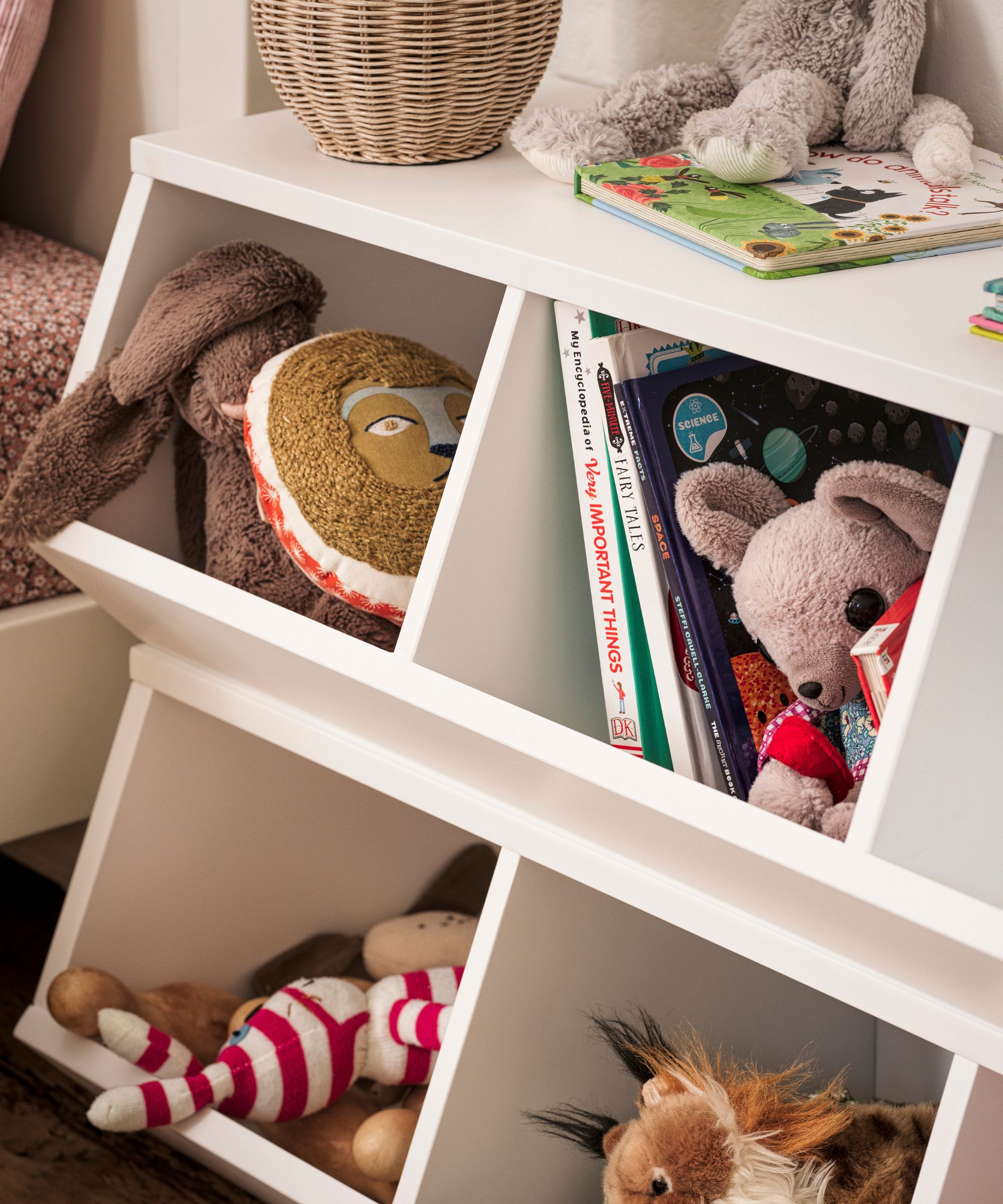
HOCl is perfect for children's toys that may end up in their moths, preventing illness and poisoning.
Cleaning and disinfecting baby toys and pet toys is a constant struggle. You can’t use harsh cleaners, or else you risk making them sick, but you can’t leave them to collect germs.
That’s why Taylor suggests cleaning with hypochlorous acid instead, ‘If you’re looking for something that kills germs without harming your family, HOCl is the go-to solution. I even use it on my kids' toys and play areas, particularly if someone’s been sick. There’s not much you can’t use it on.’
In between uses, store toys (especially bath/wet outdoor toys) in mesh storage baskets, available from Walmart, to allow them to breathe and limit the risk of mold and bacterial growth.
4. Shoes and accessories
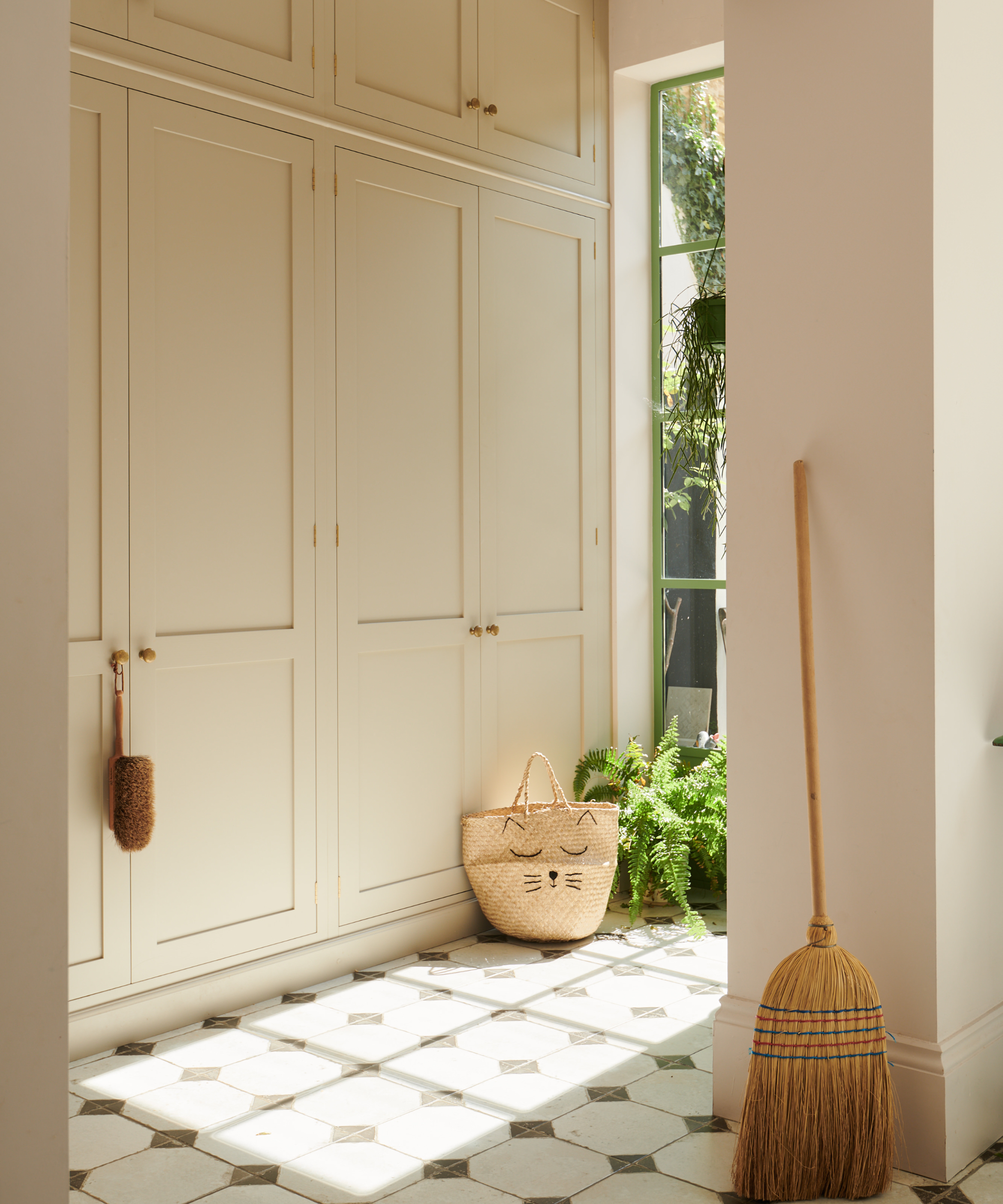
I keep a bottle of hypochlorous acid in my entryway to disinfect commonly used items as I come through the door.
One cleaning habit I cannot live without as a cleaning editor is using a spray bottle of hypochlorous acid to quickly disinfect commonly used accessories such as my shoes, glasses, and gym headphones.
Because it is so gentle, a quick spritz kills bacteria (removing and preventing odors at the same time) without risking bleaching, staining, or water damage. I simply spray, leave it to sit for a minute, and wipe away with a soft cloth.
Keeping a small spray bottle, from Target, in my gym bag also means I can spray the solution over my face when I get sweaty to kill bacteria that could otherwise cause acne – there are not many home cleaning products I can use interchangeably.
5. Upholstery
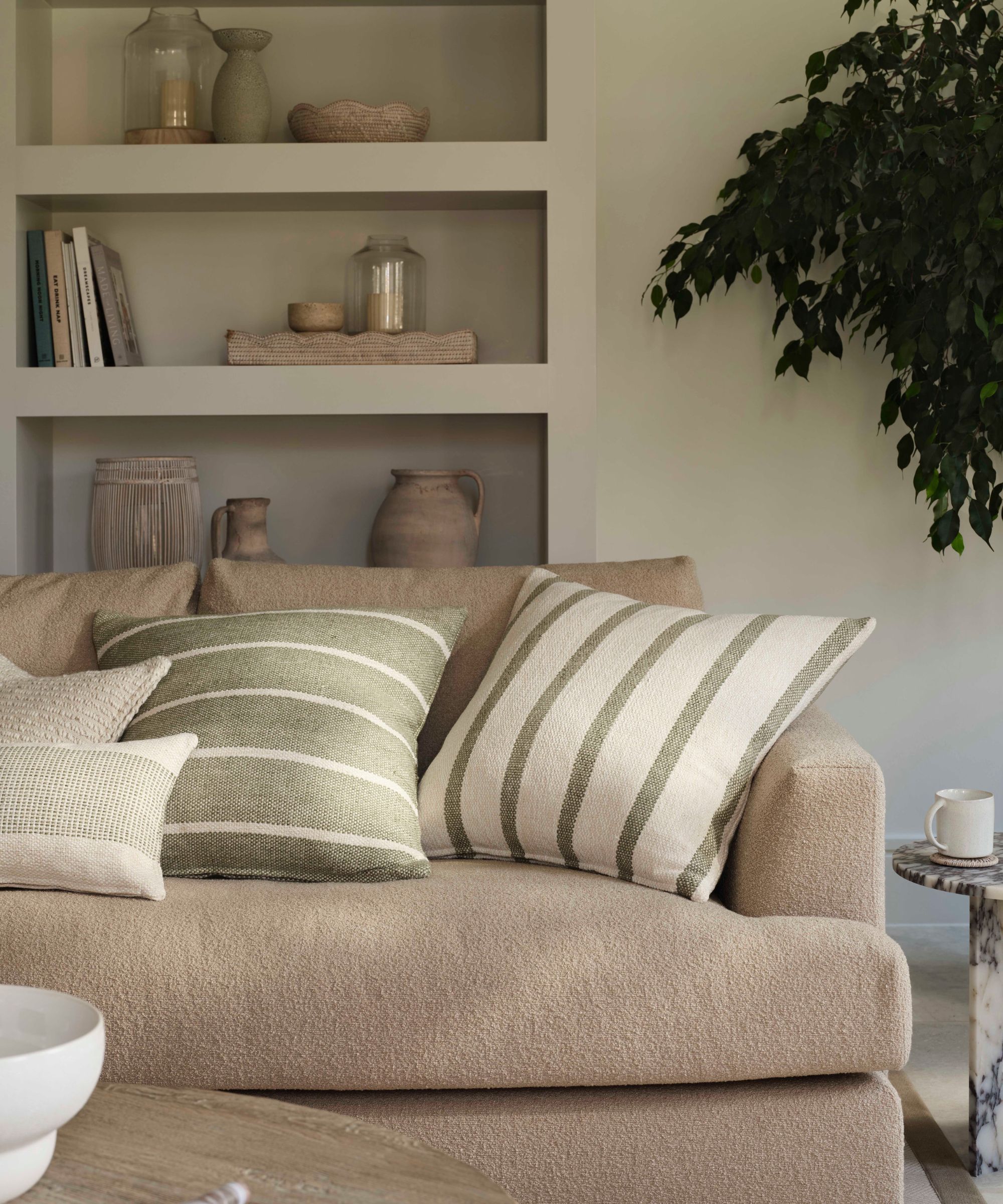
Quickly refresh upholstery without fretting about staining or bleaching.
Cleaning a couch and removing odors from upholstery is usually a painstaking task that requires machinery or a lot of elbow grease. For quick touch-ups, however, Scott says, ‘HOCl is completely safe for upholstery. Use it to spritz down furniture to deodorize and sanitize without saturating.’
Bear in mind that this solution won’t work to remove stains when cleaning upholstery; rather, it is a way of refreshing fabrics and killing bacteria for a more sanitary home. For stain removal, following the usual routine of a mild detergent (such as Tide Free & Gentle, from Walmart), water, and blotting with a clean cloth is your best bet.
The limitations of HOCl
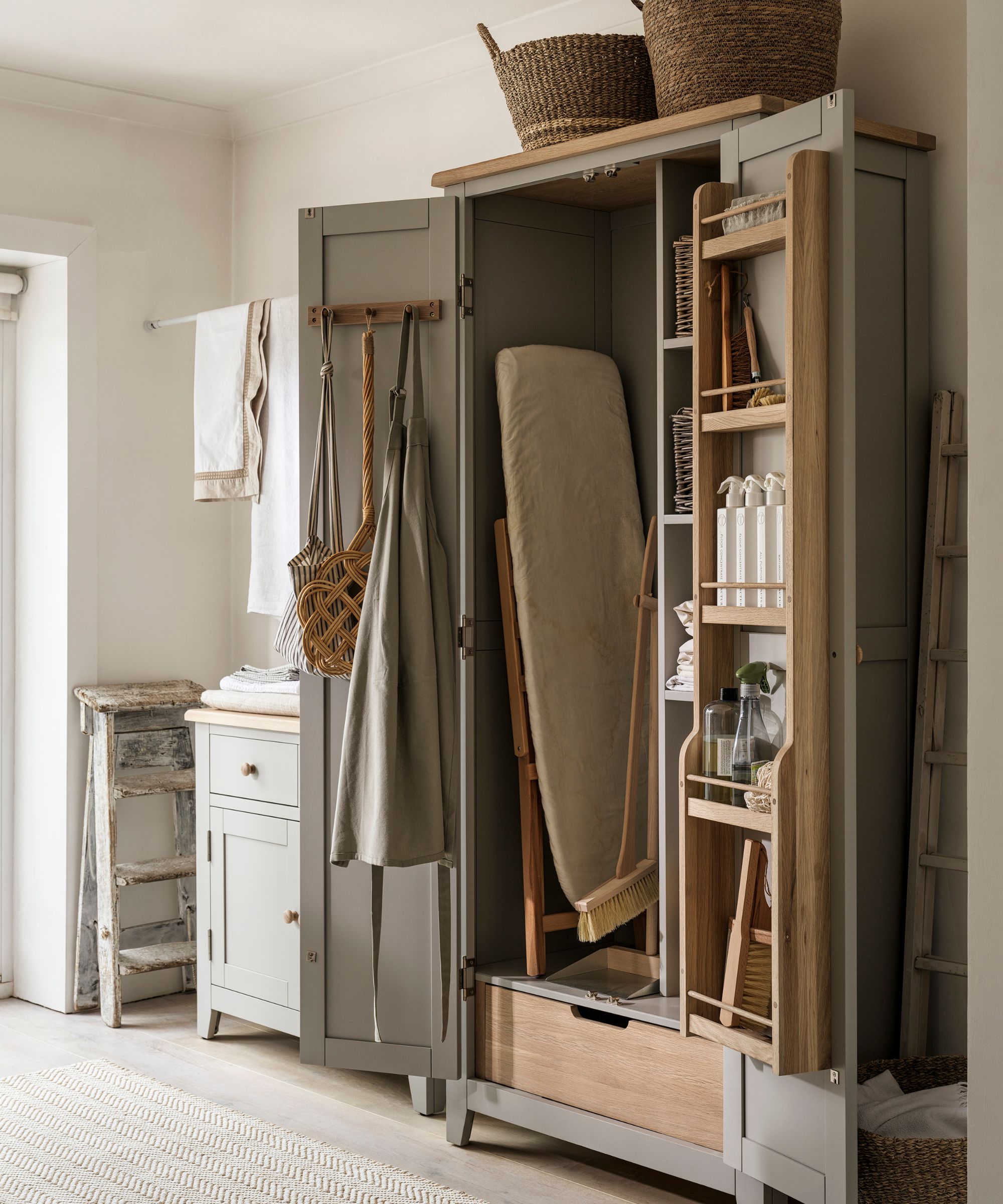
Storing HOCl properly is essential.
As with any essential cleaning tool, there are some limitations to hypochlorous acid cleaning, although these are fewer than most other cleaning products. Most notably, how you organize your cleaning supplies is essential to keeping hypochlorous acid effective.
Scott explains, ‘HOCl is very sensitive to light and air; for these reasons, you should not store HOCl in clear containers or use it if it is past the expiration date, as it loses potency rapidly.’
What’s more, you should never mix hypochlorous acid with other cleaning products, even other non-toxic solutions, such as cleaning with vinegar to cleaning with baking soda.
Taylor explains, ‘You do need to avoid mixing it with other cleaners like bleach or vinegar as it can create harmful reactions.’
What to shop
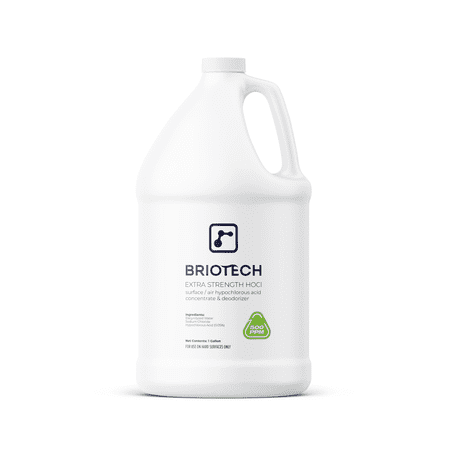
This Hypochlorous Acid (0.05%) concentrate is a potent oxidizing agent that can be used for all your cleaning and deodorizing needs.
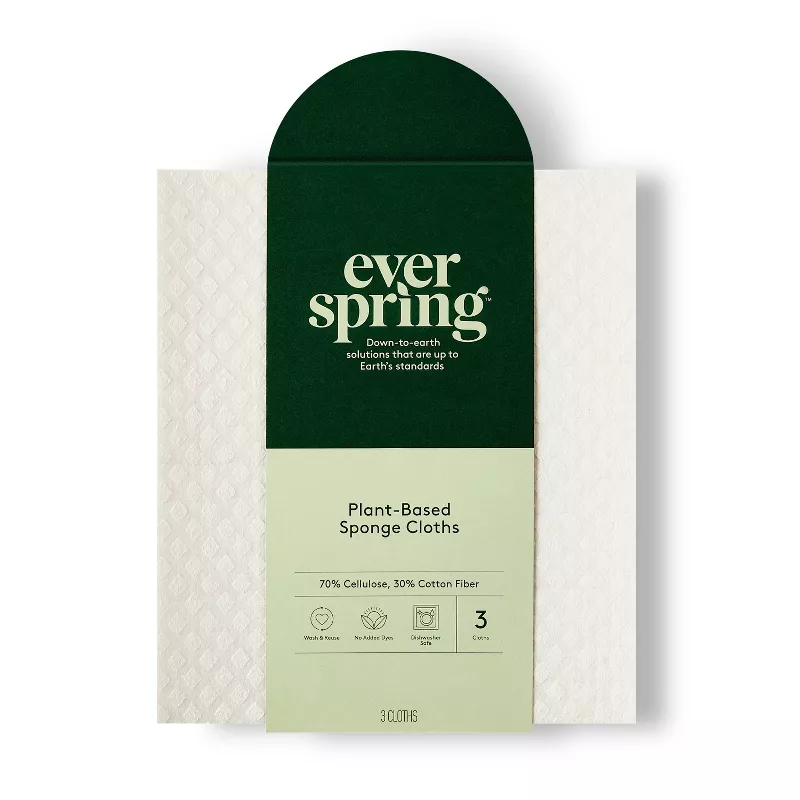
Sponge cloths are plant-based, meaning they are free from plastics and decompose in compost heaps in around 10 months, making them an eco-friendly, hygienic alternative to traditional sponges and paper towels.
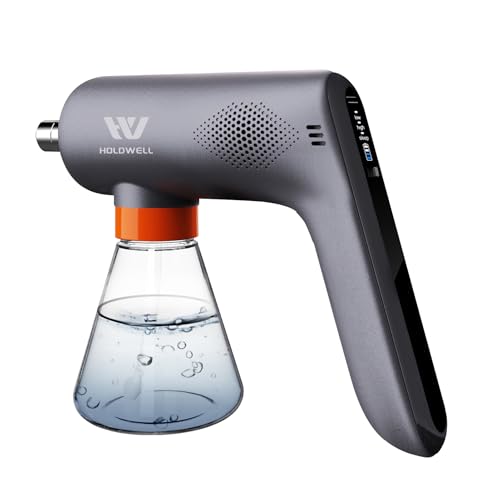
This atomizer fogger can be filled with HOCl to quickly disinfect large areas of your home in one go. Start the fogging machine and move systematically through the room, covering all areas. Pay extra attention to high-touch surfaces and allow the mist to sit for a few minutes before wiping away with a clean cloth.
FAQs
Can you mop with hypochlorous acid?
You can mop with hypochlorous acid to eliminate germs and odors. Start by spraying the whole area with the acid and let it sit for several minutes before mopping it away with a clean mop head.
Can you put hypochlorous acid in a washing machine?
For extra sanitization, you can add some hypochlorous acid directly to your washing machine with your regular detergent. This is especially useful for heavy-duty disinfecting tasks such as washing gym wear, or cleaning bedding and towels after illness.
Meet the experts

Scott is a cleaning expert at CottageCare, which is a leading home cleaning company with over 41 locations nationwide. He's a big believer in using eco-friendly cleaning solutions like baking soda.
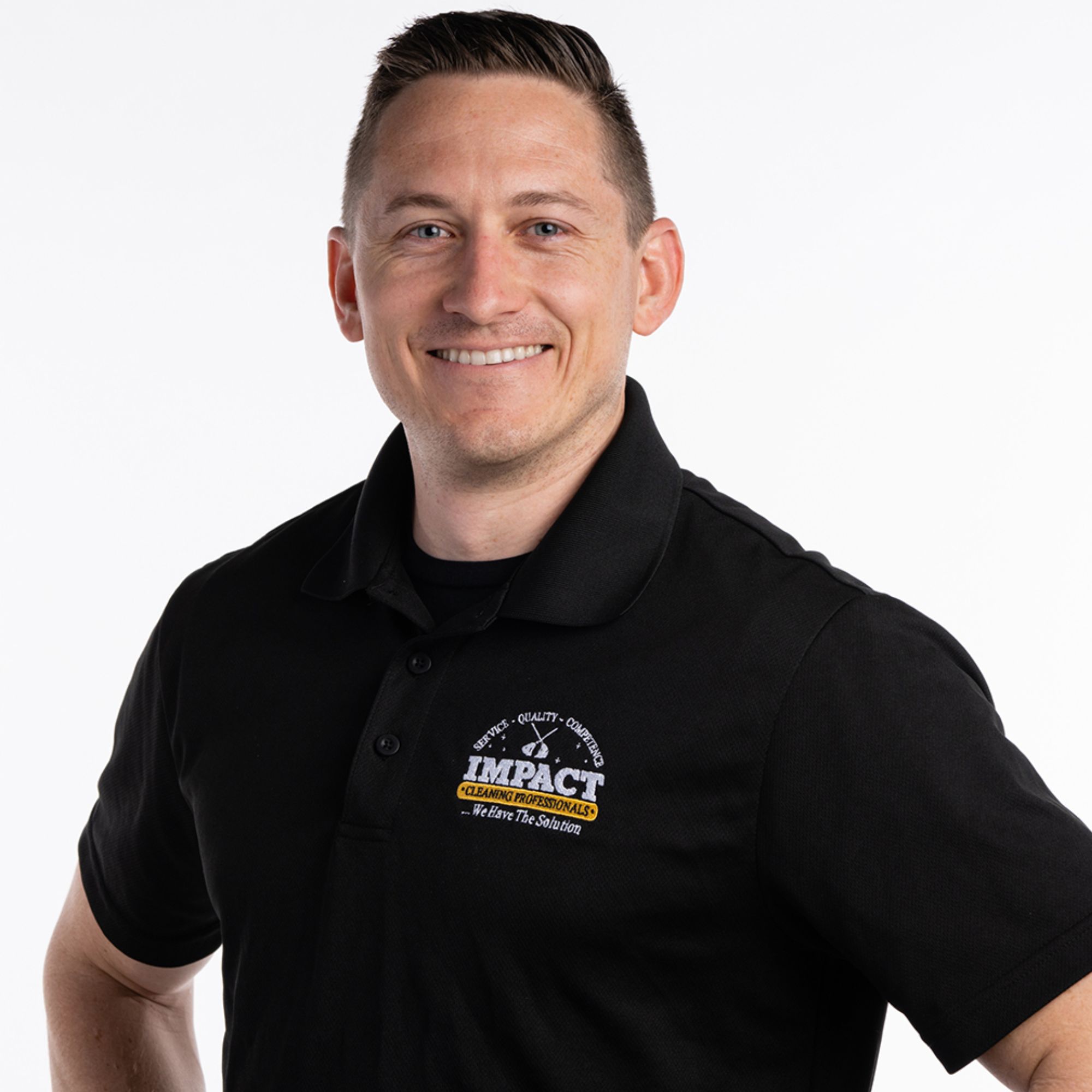
Taylor Riley is a cleaning expert and a partner at AMR US Commercial Cleaning of Maryland. He is a fan of natural cleaning methods and helping people make their homes happy and healthy.
Switching to non-toxic cleaning alternatives such as hypochlorous acid is a great way to quickly eliminate some of the most surprising sources of phthalates in your home, making you and your family healthier.

Chiana is Homes & Gardens’ kitchen appliances editor. With a lifelong passion for cooking and baking, she grew up experimenting in the kitchen every weekend with her baking-extraordinaire Mom, and has developed a great understanding of how tools and appliances can make or break your ideal relaxing kitchen routine.
